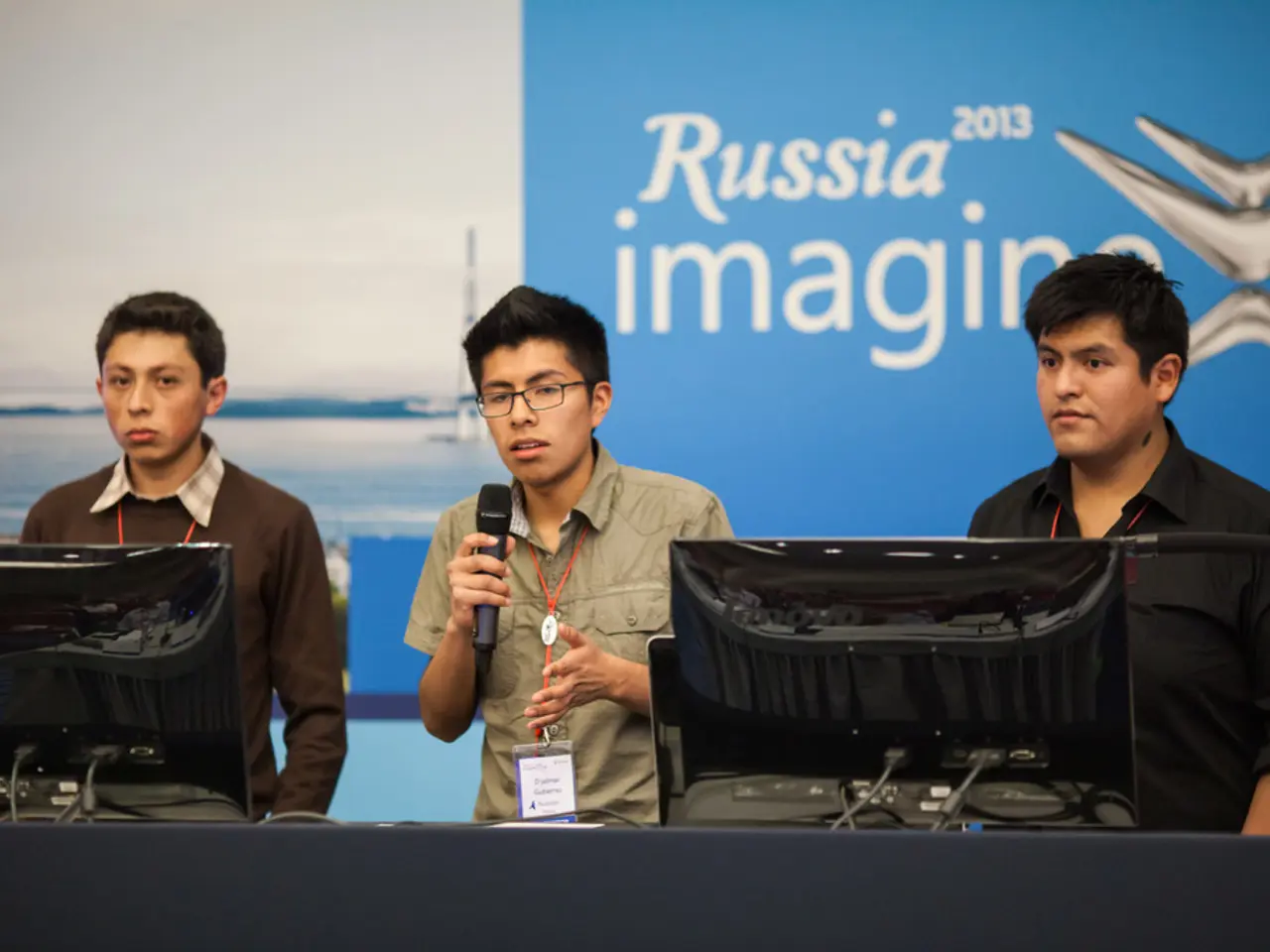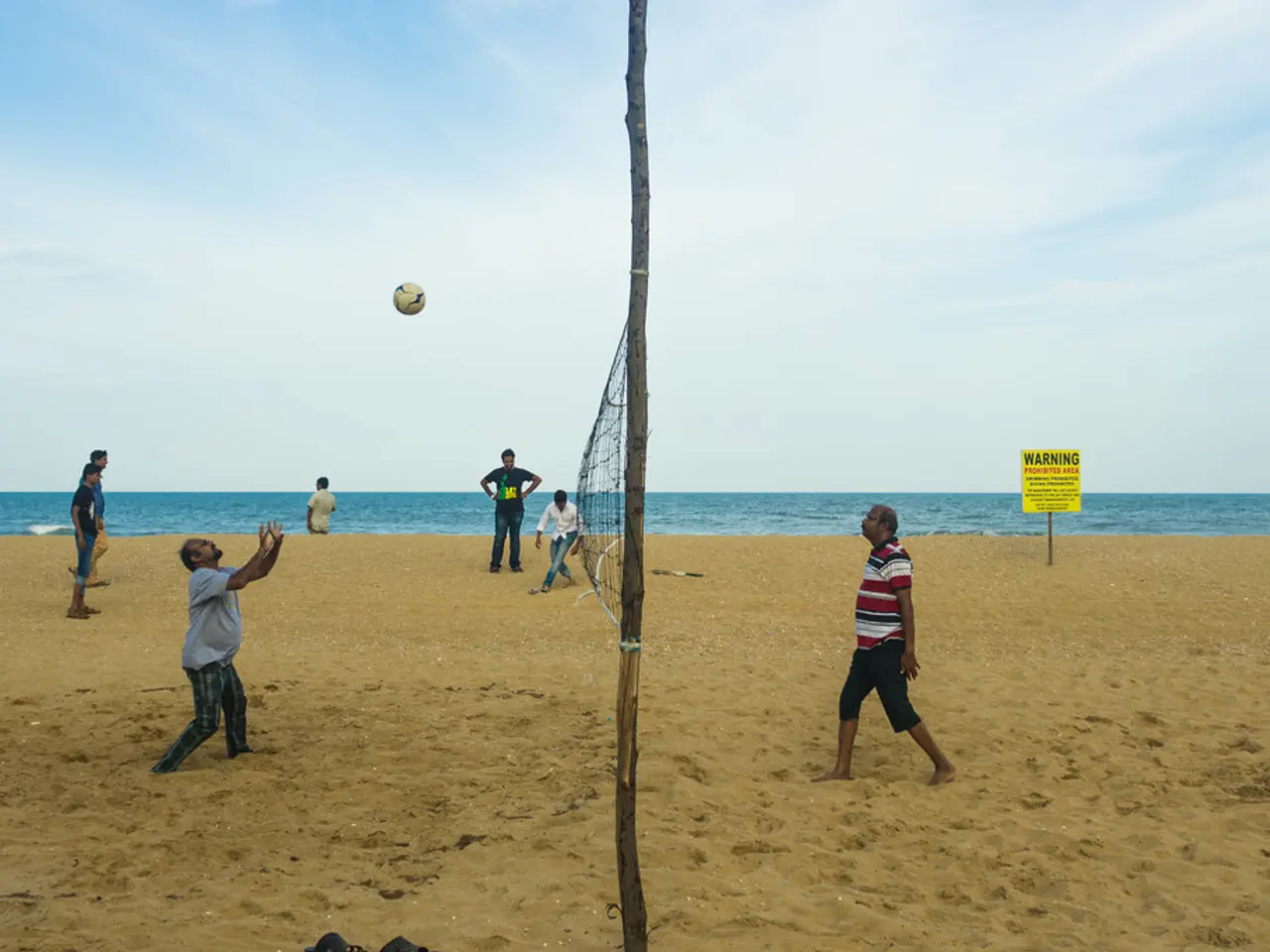European Union Foreign Affairs Chief Kallas expresses dismay over Hamas's release of hostage videos, condemning the act as abhorrent
In the volatile region of Gaza, approximately 50 hostages, including Israelis Evyatar David and Rom Braslavski, are currently being held by Hamas and Palestinian Islamic Jihad. The hostages' condition has been described as severe, with videos released by the groups showing both men appearing weak and malnourished.
According to reports, many of these hostages have tragically lost their lives, with 28 confirmed dead. The United Nations Secretary-General has denounced the inhumane conditions these hostages are enduring, describing the situation as "an affront to humanity itself."
International efforts to resolve this crisis have been escalating. The United Nations Security Council has been convening meetings, called by Israel, to discuss the hostage crisis and broader humanitarian issues in Gaza. The UN and member states have been urging the immediate and unconditional release of all hostages, emphasizing compliance with international law and humanitarian norms.
Recent international conferences, such as the High-level International Conference on the Peaceful Settlement of the Question of Palestine, have endorsed documents calling on Hamas to release the hostages and disarm, with the League of Arab States expressing their historic support for this stance.
The urgency of the situation is further highlighted by the deteriorating aid conditions in Gaza, with warnings of impending famine. Families of the hostages have been vocal in their pleas, urging the international community to ensure humanitarian aid reaches the captives. Ilay David, the brother of Evyatar David, has condemned the denial of basic necessities and described the conditions as flagrant violations of international law.
Political tensions continue to escalate, with Jordan condemning a recent visit by Israeli National Security Minister Itamar Ben Gvir to the Al-Aqsa Mosque compound as an "unacceptable provocation." The visit has been met with strong criticism from Palestinians.
Despite these challenges, efforts to secure the release of the hostages and alleviate their suffering continue. Israeli Prime Minister Benjamin Netanyahu has been in contact with the families of the hostages, expressing ongoing efforts to secure their release.
The plight of the hostages has sparked strong reactions among Israelis, fueling renewed calls for a truce and hostage release deal. Tens of thousands of people rallied in Tel Aviv to urge Netanyahu's government to secure the release of the remaining captives.
As the crisis continues, the international community remains united in its call for the immediate and unconditional release of all hostages, with the hope that these individuals can be reunited with their families and returned to safety.
- The shifting conditions in Gaza have raised concerns beyond the hostage crisis, with the World Health Organization expressing worry about the impact of war-and-conflicts on the general-news of public health in the region.
- As the hostage crisis unfolds, initiatives like the Peace and Security Council of the African Union have taken a stance against crime-and-justice violations committed by armed groups, such as Hamas, urging compliance with international norms.
- In the midst of the hostage crisis, the controversy surrounding politics has extended to international aid efforts, with the European Union seeking to prioritize democracy and human rights within any future aid agreements to Gaza.







